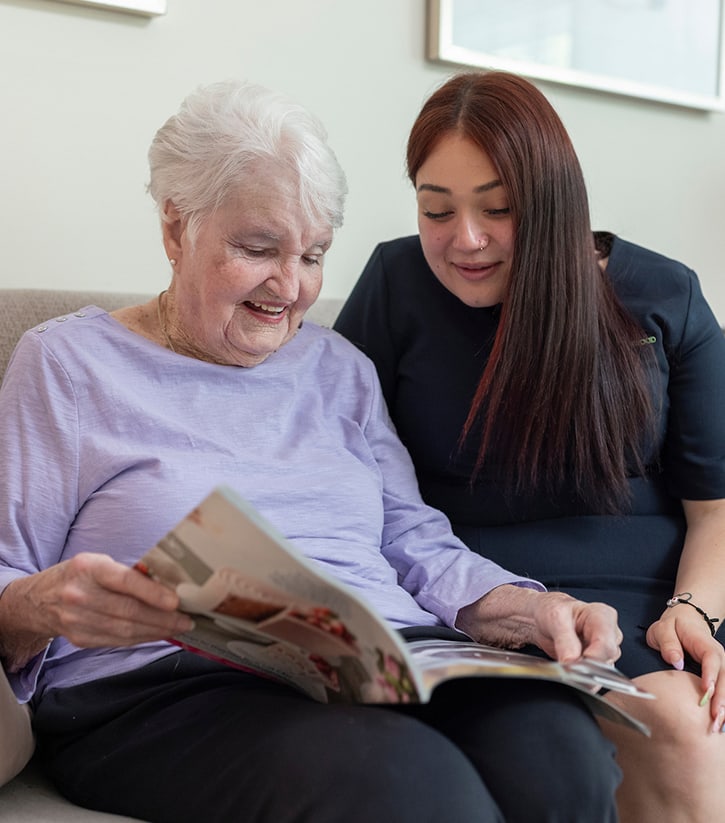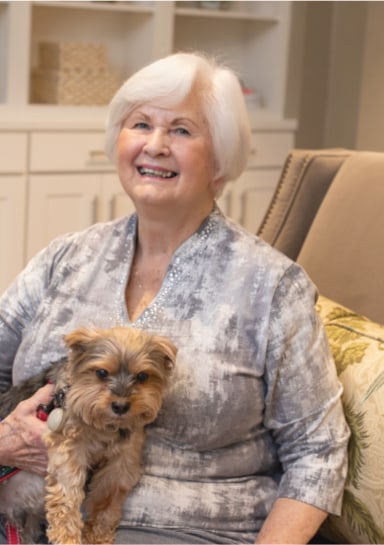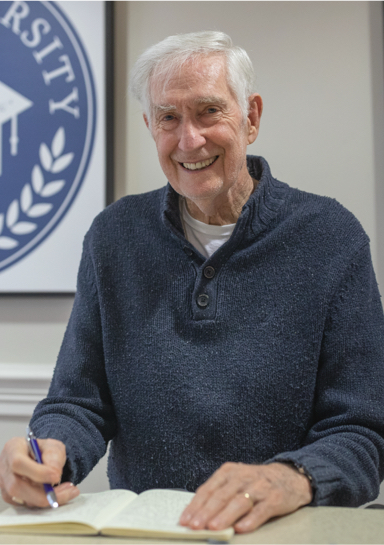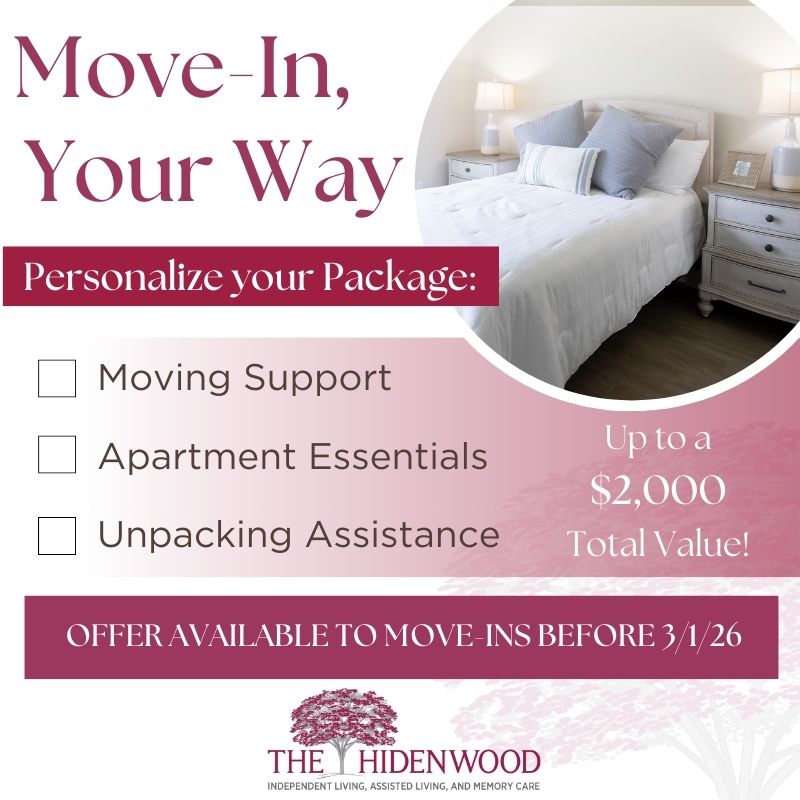Most seniors want to stay active in their homes for as long as possible after retirement, though keeping up with the cleaning and maintenance of a big home sometimes becomes impossible. Senior living communities are an excellent option for seniors who want to eliminate that upkeep and focus on enjoying their lives.
However, some people find it hard to recognize or admit when they need the extra help. As a loved family member or supporter, you can look for signs that they may benefit from assisted living, such as increased difficulty completing daily living tasks, memory loss, or social isolation.
What is Assisted Living?
Assisted living is a type of residential care designed for seniors who value their independence but need extra assistance with daily tasks. The setting can benefit those who need minimal care but would prefer a community-based social network to those for whom the daily upkeep of a house and transportation has become a burden or those who require more help after a medical event or impairment.
From personal hygiene help to medication management, assisted living services are built to accommodate a variety of needs. Perhaps most importantly, these communities prioritize creating a safe, engaging environment that promotes dignity and independence for all residents.
Key Features of Assisted Living
If you’re unfamiliar with the structure of assisted living communities, here are the key features that set them apart as an excellent option for seniors needing extra care:
- Personalized care plans tailored to meet each resident’s specific needs, such as assistance with grooming, dressing, or taking medications.
- Housekeeping and meal services to alleviate the burden of housework and ensure residents enjoy nutritious, chef-prepared meals daily.
- Social and recreational activities to keep seniors physically, mentally, and socially active. This can include yoga classes, movie nights, and group outings.
- 24/7 on-site staff will assist and ensure a safe environment for all residents.
- Safe living environments with features like handrails, emergency call systems, and wheelchair accessibility to reduce the risk of injuries.
These features aim to balance fostering independence and providing the support seniors need.
5 Common Signs It’s Time for Assisted Living
Transitioning to assisted living isn’t a decision most families or seniors take lightly. However, several indicators may suggest it’s time to explore this option.
1. Difficulty Managing Daily Tasks
Are grocery shopping, meal preparation, or housekeeping becoming overwhelming? Struggling to manage daily activities, also known as “Activities of Daily Living” (ADLs), is one of the most evident signs that extra support may be needed.
Assisted living communities help alleviate these challenges by managing everyday chores while allowing residents to focus on staying happy and engaged.
2. Memory Loss or Cognitive Decline
Difficulty remembering appointments, frequently misplacing essential items, or struggling with directions? Cognitive changes, ranging from mild memory loss to signs of dementia, can make living independently a safety risk.
Many assisted living communities also offer memory care programs designed for those with Alzheimer’s or other forms of dementia to provide a safer, more structured living environment.
3. Declining Physical Health or Mobility
A noticeable decline in strength or balance can create issues with completing routine tasks or moving around the house safely. Falls, in particular, are a red flag, as they’re the leading cause of injury among seniors. Assisted living communities reduce these risks by offering mobility support and a safer living arrangement.
4. Loneliness or Social Isolation
Living alone can sometimes lead to feelings of loneliness or depression. If seniors feel disconnected or have stopped participating in activities they once loved, assisted living can provide an instant sense of belonging by integrating them into a vibrant, interactive community.
5. Caregiver Burnout
Whether it’s a spouse, adult child, or other relative, caregivers may eventually feel overwhelmed and burned out. Family members often try to tackle caregiving tasks while managing jobs and other responsibilities, leaving them with little time for self-care. Assisted living can support the entire family by easing the burden if this strain takes a toll.
How Assisted Living Benefits Seniors
Moving to assisted living isn’t just practical—it can be life-changing for seniors. Here’s how it can help improve their quality of life:
- Enhanced safety: With 24/7 staff availability, emergency call systems, and thoughtfully designed living spaces, residents can feel confident knowing help is always nearby.
- Sense of community: Assisted living fosters social connections through group activities, shared spaces, and events, which can significantly reduce feelings of isolation.
- Professional, personalized care: Each senior receives care tailored to their individual needs, whether it’s medication scheduling, physical therapy, or assistance with daily tasks.
- Freedom from chores: Housework, laundry, and meal prep become a thing of the past, leaving residents with more time—and energy—to pursue hobbies and interests.
- Mental and physical stimulation: From art classes to exercise programs, residents are encouraged to stay physically and mentally engaged, promoting a healthier, more active lifestyle.
How Assisted Living Benefits Families Struggling with Burnout
Families often feel a deep sense of guilt when considering assisted living for their loved ones. However, shifting caregiving responsibilities to professionals significantly benefits everyone involved. Knowing their loved one is in a safe, supportive environment gives family members peace of mind, allowing them to focus on strengthening their relationships.
Assisted living enables families to balance caregiving obligations with their well-being, creating a healthier dynamic for everyone.
Could Assisted Living Be the Next Step for You or a Loved One?
Recognizing the signs and moving toward assisted living is a courageous decision that opens the door to better care, a higher quality of life, and a thriving sense of community. Whether it’s safety, social connections, or caregiver relief, assisted living provides peace of mind to seniors and their families.
The Hidenwood knows early planning is key to making an informed senior living decision that does not result from a crisis or stress. Contact us today to learn more about independent living and how it could benefit your loved one.














